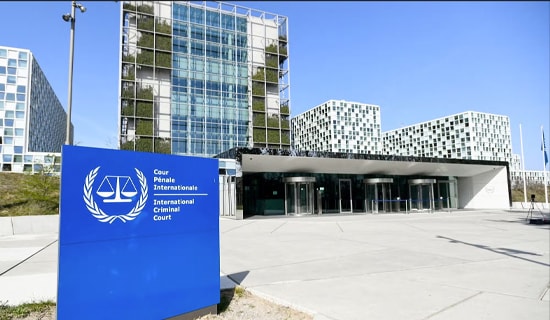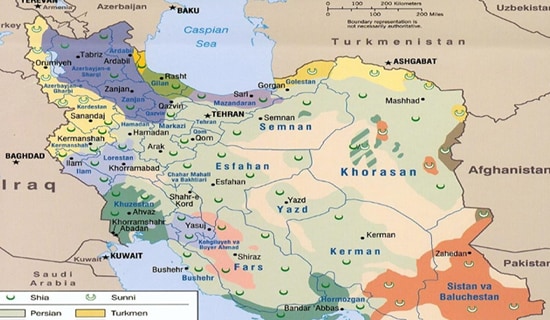Introduction
The position of the Syrian regime, led by President Bashar Al-Assad, on the formation of the anti-terror coalition led by the U.S. and the Gulf states against the Islamic State (IS, formerly the Islamic State in Iraq and Syria – ISIS) is twofold. On the one hand, it sees the West's acknowledgement that extremist Islamist organizations are a threat and must be combated as justification of what it has been claiming since the beginning of the civil war in the country, as well as an opportunity for rebuilding its status internationally through collaborating with the coalition. In this context, the Syrian Al-Watan daily and the Lebanese Al-Akhbar daily, which are close to the Syrian regime, claimed that Syria-U.S. intelligence coordination was taking place, brokered by a third party, and that this coordination had helped regime forces strike ISIS targets within Syria.[1] Whether or not this report is true, its publication by regime-associated papers indicates that the Syrian regime is willing to cooperate with the coalition, but only on its own terms. By the same token, the regime cannot publicly oppose the idea of an international coalition to fight the IS, since it itself claims to be fighting them.
On the other hand, the regime fears that action against the organization on Syrian soil will provide an opening for the coalition to act militarily against the regime itself, and also for it to provide support for Syrian opposition forces that the West perceives as moderate. In addition, the coalition's exclusion of Syria and its ally Iran exacerbates Syria's apprehensions that the coalition will act against it.
Thus, the Syrian regime's response to the establishment of the coalition has consisted of repeated calls for it to be included in the fight against the IS, combined with criticism of the coalition's composition and objectives and with threats regarding the repercussions of any action on the coalition's part that is not coordinated with the regime.
The Coalition Must Involve – And Coordinate With – Damascus
Since the beginning of the anti-regime protests in Syria in March 2011, the Syrian regime has claimed that these protests were not authentic political protests but rather activity by extremist Islamist forces supported by foreign elements that aim to weaken the Syrian state. The establishment of the anti-terror coalition provides justification for these claims by the regime – and offers the regime an opportunity to both rebuild its status internationally and to regain the legitimacy that it lost because of its brutal suppression of those protesting against it.
The regime also fears that the coalition's exclusion of it and of its ally Iran will pave the way to an expansion of the coalition's anti-terror mission to include military action against it as well. For these reasons, regime spokesmen have reiterated numerous times that Syria is a vital element in this effort.
Syrian Deputy Foreign Minister Faysal Al-Miqdad stressed: "Damascus is the one that must be appealed to for the struggle against terrorism. Disregarding [Damascus] clearly expresses a lack of desire to really fight terrorism…"[2] Likewise, Syrian Information Minister 'Omran Al-Zo'abi said: "Any party seeking to fight terrorism has no option but to coordinate with all the forces that are proven to be capable of acting in the field as well as with the region's states and governments. Any decision to do otherwise is a bad one and will cause great damage." He added that the regime's terms for this coordination would be discussed when the idea is raised.[3]
Also, Dr. Bassam Abu 'Abdallah wrote in Al-Watan: "Continuing the fight against terrorism without Damascus's involvement is greatly delusional; a political solution without the leadership of Assad is even more so."[4]
Syrian Airspace Is A Red Line – Crossing That Red Line Without Coordinating With Syria Will Be Considered An Act Of Aggression
Along with insisting that it be part of the coalition, the Syrian regime also threatened that any action on Syrian soil that was not coordinated with it would be considered an act of aggression, and that there would be consequences.
Information Minister 'Omran Al- Zo'abi explained on Hizbullah's Al-Manar TV: "The U.S. will not be able to attack ISIS on Syrian territory without coordinating with the government. If it does, the Syrian government will have something to say about it. Any action taken without coordination will be considered an act of aggression [against Syria], not [part of] the fight against terrorism.[5] Raghda Mardini, the editor of the official Syrian daily Teshreen, called Syrian airspace is "a red line" that must not be crossed.[6] Another point was the possibility of forming a parallel axis to fight terrorism, comprising Iran, Russia, and Syria. Al-Watan columnist Ma'amoun Al-Hasani even hinted that such a parallel coalition would not only provide political coordination, support, and arms, but would also involve "joint military plans."[7]
Assad: The Fight Against Terrorism Should Begin By Pressuring Terror-Sponsoring States
In an attempt to divert attention from itself, and also to undermine the anti-terror coalition's legitimacy, the Syrian regime is claiming that the main coalition members are actually behind the extremist Islamist terror groups, and are funding and arming them. At a meeting with Iraqi National Security Advisor Faleh Al-Fayyadh, Assad said: "The fight against terrorism must begin by pressuring countries that support and fund the terror organizations in Syria and Iraq – [countries] that are currently claiming that they are fighting terror."[8] Syrian Deputy Foreign Minister Al-Miqdad explained: "For years, Saudi Arabia and Turkey were an integral part of [the group that] supports terrorism and terrorist organizations in Syria, including ISIS. They hosted the terrorists [on their own soil], facilitated their movement into Syria, and provided them with everything [they needed] to come and kill the Syrian people."[9]
Teshreen editor Raghda Mardini even accused the U.S. of fomenting terrorism, saying: "With its policy, its words, and its actions, the U.S. proves what everyone already knows, which in essence is based on a total takeover, partition, and reshaping of the region so that it will serve both Israel's security and the U.S.'s interests and allies... Moreover, [U.S. policy, words, and action] further show that this terrorism is its [i.e. the U.S.'s] handiwork…" [10]
Regime Officials: What Are The Real Aims Of The Anti-Terror Coalition?
Top Syrian regime officials and regime associates have also expressed numerous doubts about the real objectives of the coalition, stating that its exclusion of Syria and Syria's allies fuels concern that the coalition's real aim is not to fight the terrorist organizations – which they claim are financed by leading coalition members. The real aim, they say, is to work against Syria and the resistance axis – i.e. Iran and Hizbullah – and their allies, and to serve U.S. interests. Deputy Foreign Minister Al-Miqdad noted: "Syria has been uncompromisingly fighting terrorism for over three years. Its absence, and the absence of other important countries, at the [anti-]terror conferences, such as those in Jeddah[11] and Paris,[12] raises many doubts about these conferences…"[13]
Teshreen editor Mardini pointed at what she alleged was the coalition's failure to present a definite plan for its fight against terrorism: "The war on terror is a serious war that cannot be pursued with plans with nebulous objectives... that will damage the countries' sovereignty and liberty …"[14] Additionally, Al-Watan columnist Abu 'Abdallah speculated whether the real aim of the war declared by the U.S. and the "friends of ISIS" was actually to fight Syria, in order to reshuffle the regional deck so that it served the interests of the U.S. and its allies.[15]
* N. Mozes is a research fellow at MEMRI.
Endnotes:
[1] The identity of the third party is unclear. Al-Watan speculated that it may be Iraq, Russia or Germany. According to Al-Akhbar, there are indications that it is the Norse embassy in Damascus or Iraqi National Security Advisor Faleh Al-Fayyadh, who recently met with Bashar Al-Assad. Al-Watan (Syria), September 14, 2014; Al-Akhbar (Lebanon), September 18, 2014.
[2] Teshreen (Syria), September 16, 2014.
[3] Teshreen (Syria), September 16, 2014.
[4] Al-Watan (Syria), September 10, 2014.
[5] Al-Manar (Lebanon), September 15, 2014.
[6] Teshreen (Syria), September 14, 2014.
[7] Al-Watan (Syria), September 8, 2014.
[8] Al-Watan (Syria), September 17, 2014.
[9] Teshreen (Syria), September 16, 2014.
[10] Teshreen (Syria), September 14, 2014.
[11] A conference held on September 11, 2014 with the participation of the foreign ministers of the U.S., Turkey, Egypt, Jordan, Lebanon, Iraq and the Gulf states, to discuss action against terror organizations, especially the IS, as part of an international coalition to combat terrorism.
[12] A conference held September 15, 2014 to discuss Iraq's security and stability and the struggle against the IS.
[13] Teshreen (Syria), September 16, 2014.
[14] Teshreen (Syria), September 14, 2014.
[15] Al-Watan (Syria), September 10, 2014.








